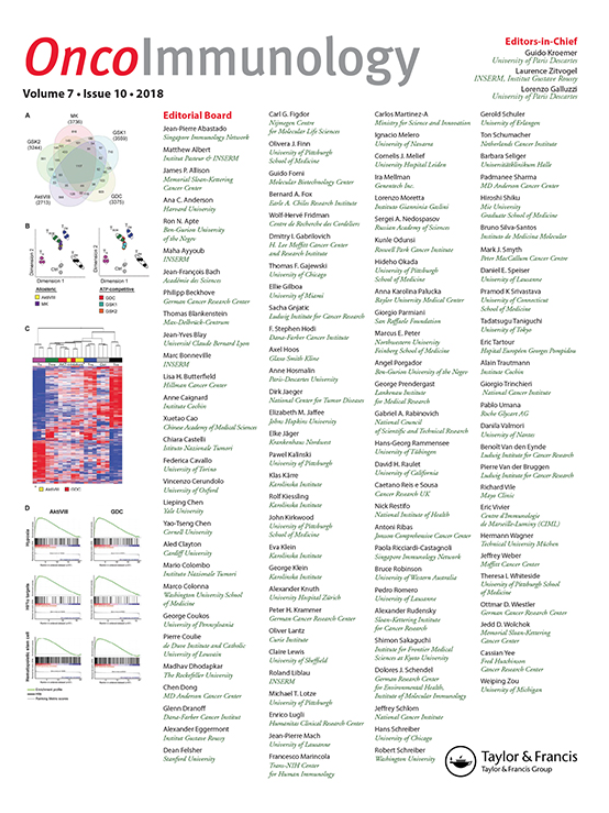多管齐下以 CD38 为靶点,提高抗 PD1 免疫检查点阻断疗法的疗效。
IF 7.2
2区 医学
引用次数: 0
摘要
CD38 是一种参与 NAD+ 分解代谢的多功能酶,被认为是抗肿瘤 CD8 T 细胞的代谢检查点。最近的一项研究发现,除了直接的代谢机制外,CD38 介导的 RyR2-AKT-TCF1 信号在分子水平上调节抗 PD1 癌症疗法的反应性。这些发现主张多管齐下,以 CD38 为靶点克服免疫检查点阻断疗法的抗药性。本文章由计算机程序翻译,如有差异,请以英文原文为准。
Multiprong CD38 targeting to enhance anti-PD1 immune checkpoint blockade efficacy.
CD38, a multifunctional enzyme involved in NAD+ catabolism, is hypothesized to act as a metabolic checkpoint for antitumor CD8 T cells. A recent study discovered that, apart from its direct metabolic mechanisms, CD38-mediated RyR2-AKT-TCF1 signaling regulates responsiveness to anti-PD1 cancer therapy at the molecular level. These findings advocate multiprong CD38 targeting to overcome resistance to immune checkpoint blockade therapy.
求助全文
通过发布文献求助,成功后即可免费获取论文全文。
去求助
来源期刊

Oncoimmunology
ONCOLOGY-IMMUNOLOGY
CiteScore
12.80
自引率
2.80%
发文量
276
期刊介绍:
Tumor immunology explores the natural and therapy-induced recognition of cancers, along with the complex interplay between oncogenesis, inflammation, and immunosurveillance. In response to recent advancements, a new journal, OncoImmunology, is being launched to specifically address tumor immunology. The field has seen significant progress with the clinical demonstration and FDA approval of anticancer immunotherapies. There's also growing evidence suggesting that many current chemotherapeutic agents rely on immune effectors for their efficacy.
While oncologists have historically utilized chemotherapeutic and radiotherapeutic regimens successfully, they may have unwittingly leveraged the immune system's ability to recognize tumor-specific antigens and control cancer growth. Consequently, immunological biomarkers are increasingly crucial for cancer prognosis and predicting chemotherapy efficacy. There's strong support for combining conventional anticancer therapies with immunotherapies. OncoImmunology will welcome high-profile submissions spanning fundamental, translational, and clinical aspects of tumor immunology, including solid and hematological cancers, inflammation, and both innate and acquired immune responses.
 求助内容:
求助内容: 应助结果提醒方式:
应助结果提醒方式:


